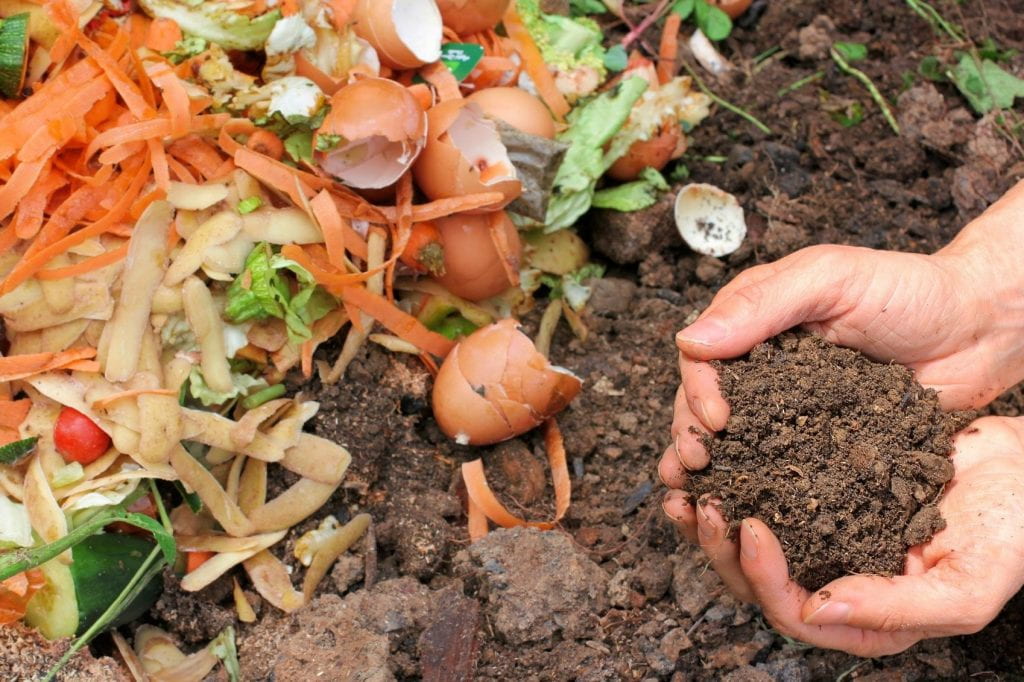City, UA officials say composting helps reduce waste
Fayetteville and the UofA advocate expanded composting programs.

By Abby Zimmardi
The Razorback Reporter
Fayetteville city officials started composting food waste last year and are working to improve soil health and divert trash from landfills, a city health coordinator said.
“There’s a lot of benefits of composting,” Brian Pugh, the city of Fayetteville waste reduction coordinator said. “The most obvious is that it improves the health of the soil. It’s not a fertilizer; it’s organic matter.
“In Arkansas it’s illegal to throw away yard waste, and composting is the answer to that,” Pugh said.
Act 751 took effect in 1991, Pugh said. In 2018, Fayetteville city officials approved a food waste composting program.
City officials passed a plan in 2017 to divert 40% of waste from landfills by 2027, Pugh said.
“We have a goal to divert from the landfill,” Pugh said. “Now we’re trying to target food waste and collect as much as we can and put it in our compost system.”
The waste diversion plan also has helped to improve Fayetteville’s composting program, Pugh said.
Waste diversion is redirecting waste away from landfills by recycling or composting, said Sophie Hill, zero waste coordinator for the office for sustainability. That is one of the main goals of the Office for Sustainability.
“We want to be net zero waste by 2040,” Hill said. “That means that of all the waste we have, we want 90% of it to be diverted from the landfill. Right now we are a little bit below 50% waste diversion.”
The UA Office for Sustainability and the university both work with the city of Fayetteville to certify that leftover food is not wasted, but diverted. They set a goal in place to have net zero waste achieved by 2040, Hill said.
“The city of Fayetteville, a couple of years ago, partnered with Chartwells dining on campus and they rolled out a composting pilot program and it went super well,” Hill said. “So now Chartwells and the city are working together and they have composting in the back of each dining hall.”
Brough and Fulbright dining halls have bins that leftover food goes into so that it can get composted, said Eric Boles, director of the office for sustainability.
“All of our dining halls on campus are collecting food waste and even use napkins and they put those in bins that are picked up by the city of Fayetteville,” Boles said.
Compostable products include food waste as well as certain cups and plates as long as they say BPI certified compostable wear on it, Pugh said. BPI stands for Biodegradable Products Institute and that means that any product with that on it, can be composted, he said.
“Degradability, that is the product that starts to break down but it never goes away,” Pugh said.
“The compostable wears, those actually become part of the compost.” Restaurants in Fayetteville are starting to use products that are BPI certified, Pugh said.
While it is beneficial to divert waste from landfills by using BPI products, it does not add any value to the compost if there is not any food waste in it, Pugh said.
“At the end of the day, if all you collect are napkins and no food waste, how valuable is that?” Pugh said. “It’s not.”
Composting is something that anyone can do, Boles said.
“It’s fairly easy,” Boles said. “It’s as simple as if you had a corner of your backyard that’s unused. You could start composting food waste and mix it once a week.”
